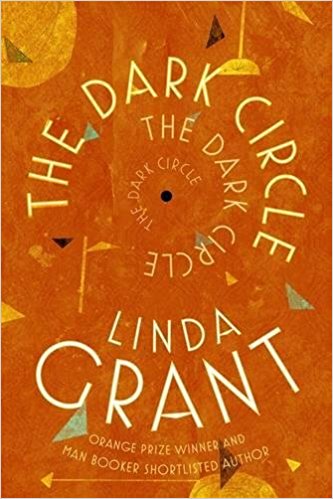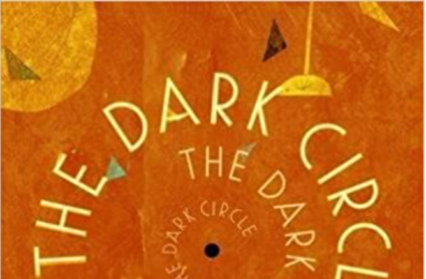Carolyn Percy reviews award winning author Linda Grant’s The Dark Circle, postwar fiction which opens a timely discussion on British social history.
The Gwendo – a sanatorium for Tuberculosis patients. Once, its care was available only to those who could afford it, but now, thanks to the newly created National Health Service, is free to all. Removed from the grey and grime of London to the alien world of the Kent countryside, Jewish twins Lenny and Miriam Lensky arrive at its doors one day in 1949; the sanatorium’s first working class patients. Now under the care of Dr Limb and his philosophy of learning the way of the patient, they are subjected to cures and regimes as pointless as they are soul destroying, even dangerous – from constant temperature monitoring to partially collapsing lungs. But there are rumours of a cure on the horizon, a miracle drug called Streptomycin. Lenny, Miriam and the other patients come to the realisation that the only way to acquire their freedom may be to incite rebellion.
care was available only to those who could afford it, but now, thanks to the newly created National Health Service, is free to all. Removed from the grey and grime of London to the alien world of the Kent countryside, Jewish twins Lenny and Miriam Lensky arrive at its doors one day in 1949; the sanatorium’s first working class patients. Now under the care of Dr Limb and his philosophy of learning the way of the patient, they are subjected to cures and regimes as pointless as they are soul destroying, even dangerous – from constant temperature monitoring to partially collapsing lungs. But there are rumours of a cure on the horizon, a miracle drug called Streptomycin. Lenny, Miriam and the other patients come to the realisation that the only way to acquire their freedom may be to incite rebellion.
The Dark Circle, Linda Grant’s seventh novel and currently, at the time of writing, shortlisted for this year’s Bailey’s Prize, is a story of the love between siblings, of how freedom and joy are as necessary to a person’s recovery as medicine, a brilliant series of character studies and a fascinating slice of social history. The story begins in an England where, four years after the war, “still everything is up shit creek… everything is short, soap is short, joy is short, sex is short, and no one on the street is laughing so jokes must be short too.” There are hints of a brighter, more optimistic future to come – flashes of colour here and there: “a woman’s red hat” and a girl’s “bottle green leather shoes” – and the Lenskys are part of this: nineteen and in the prime of their youth; fashion conscious Lenny with his drape-cut suit and Italian shoes, bosomy Miriam, in love with the glamour of Hollywood and American cinema. Their vibrancy – both in manner and dress, seen as refreshing by some and vulgar by others – is at odds with and a stark contrast to the staid atmosphere of resignation and suppressed desperation. And yet, the sanatorium also exposes them to a wider range of people than they ever would have encountered had they stayed in London – a mysterious German émigré, army officers, a car salesmen, even a member of the aristocracy – who they find themselves learning from as much as others learn from them. From Valerie, for instance, (Miriam’s roommate & former university student) they discover the pleasures of reading and Valerie, in turn, comes to admire the Lensky’s, for their bravado and lust for life, and appreciate their less intellectual interests. Late arrival Arthur Persky – an American Merchant seaman – brings with him things as revolutionary the beginnings of rock and roll and American ideals of individual freedom – an education for all.
It is also an incredibly timely and relevant novel. How so? Well, think of two of the most popular and contentious topics in the news: immigration and the NHS. The NHS of the novel is newly created, and yet you’ll hear some suspiciously familiar-sounding opinions being voiced – that providing free health care for ‘everyone’ will create a nation of dependants and scroungers at the expense of those who pay. (There is also implicit criticism directed at those who implemented it for their lack of forward planning; in a revealing conversation between two important, but minor, characters, one of them – a government minister – admits that they only envisaged working people signing up for it and didn’t anticipate the middle classes signing up for it in the numbers they did.) And it’s not just regarding the NHS where you’ll hear some familiar bells chiming: in the beginning of the novel, Lenny witnesses a demonstration against the influx of Jewish refugees and Miriam faces discrimination at work, forced to adopt the moniker ‘Mimi’ because Miriam is “a little too Hebrew” for the clientele.
When reading The Dark Circle, one occasionally has the uncomfortable moment where you find yourself wondering how much has really changed.
But, as bleak as this novel can sometimes feel, it’s also bursting with colour and life, illustrative of what author Christobel Kent called in her Guardian review “that odd, downbeat, fertile decade between war and sexual liberation.” A great novel that will also hopefully provoke some needed conversation.
Carolyn Percy is a critic and regular contributor to Wales Arts Review.











